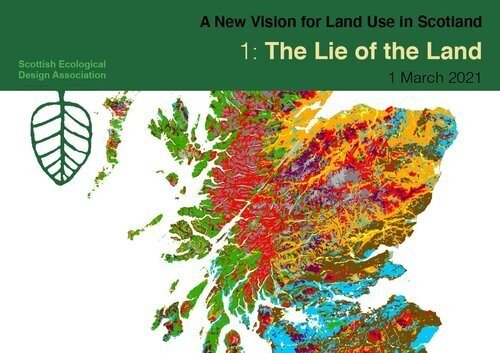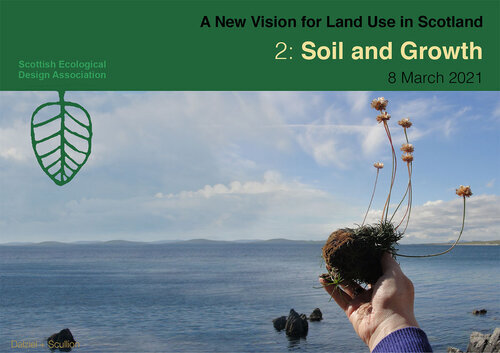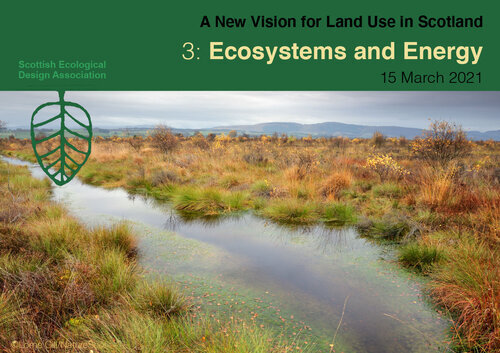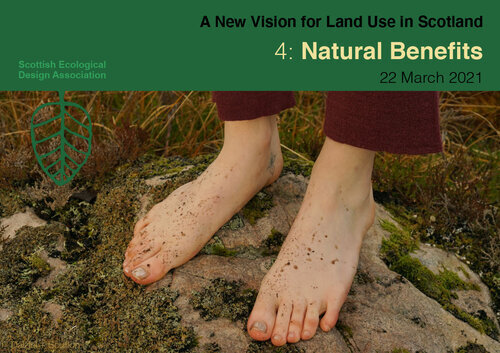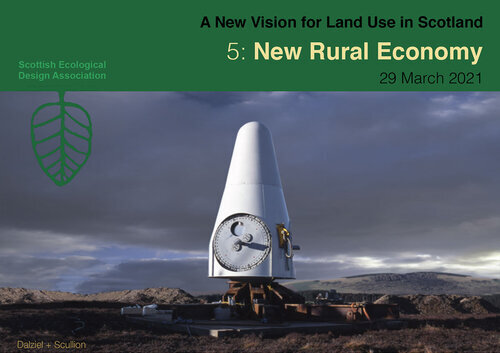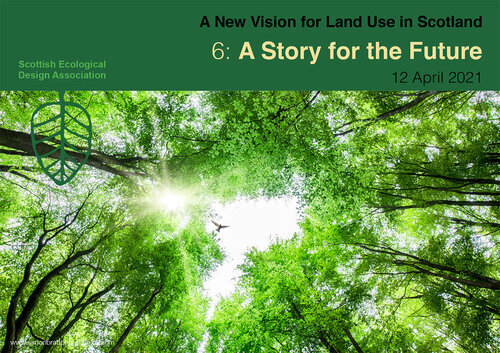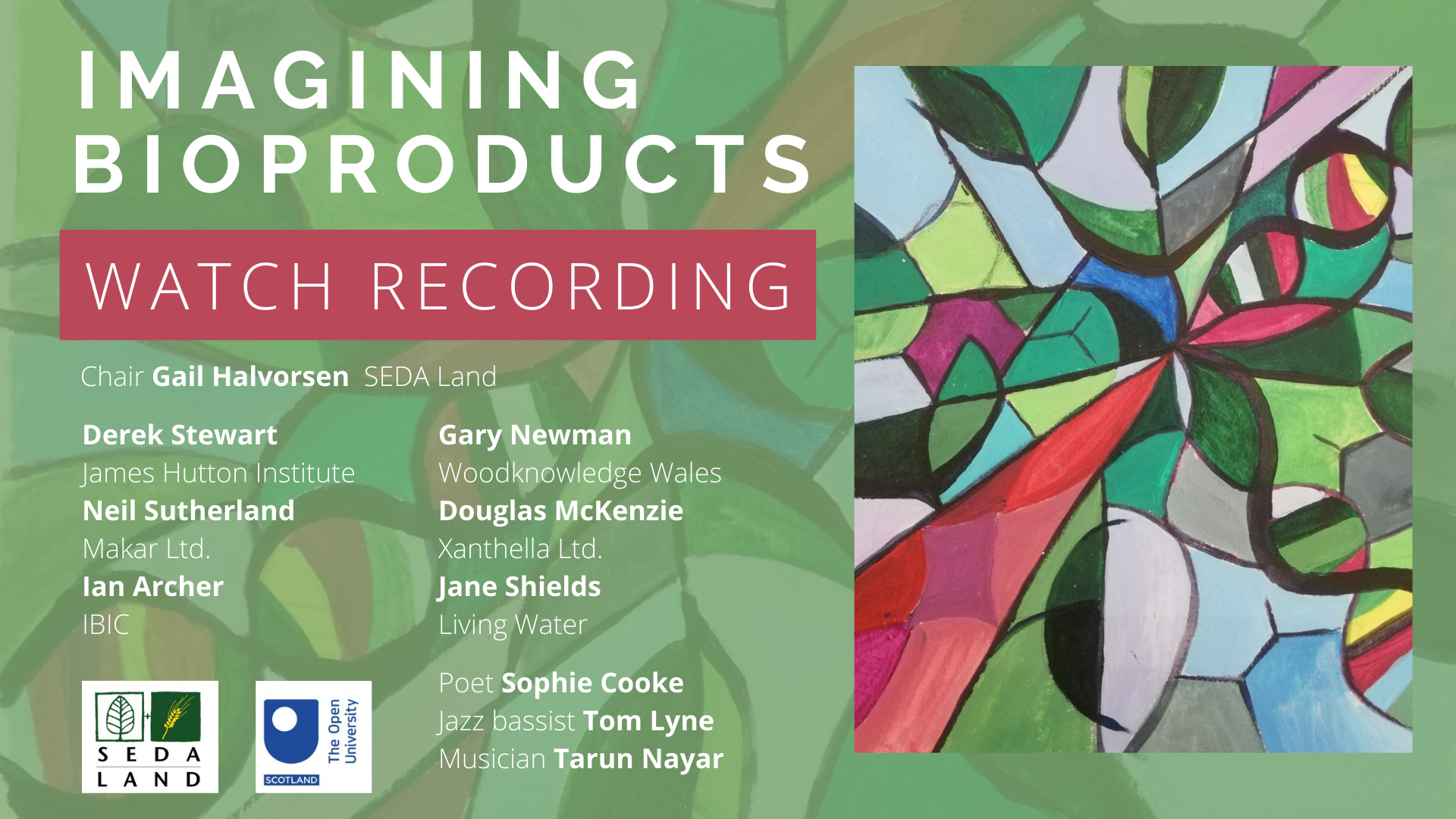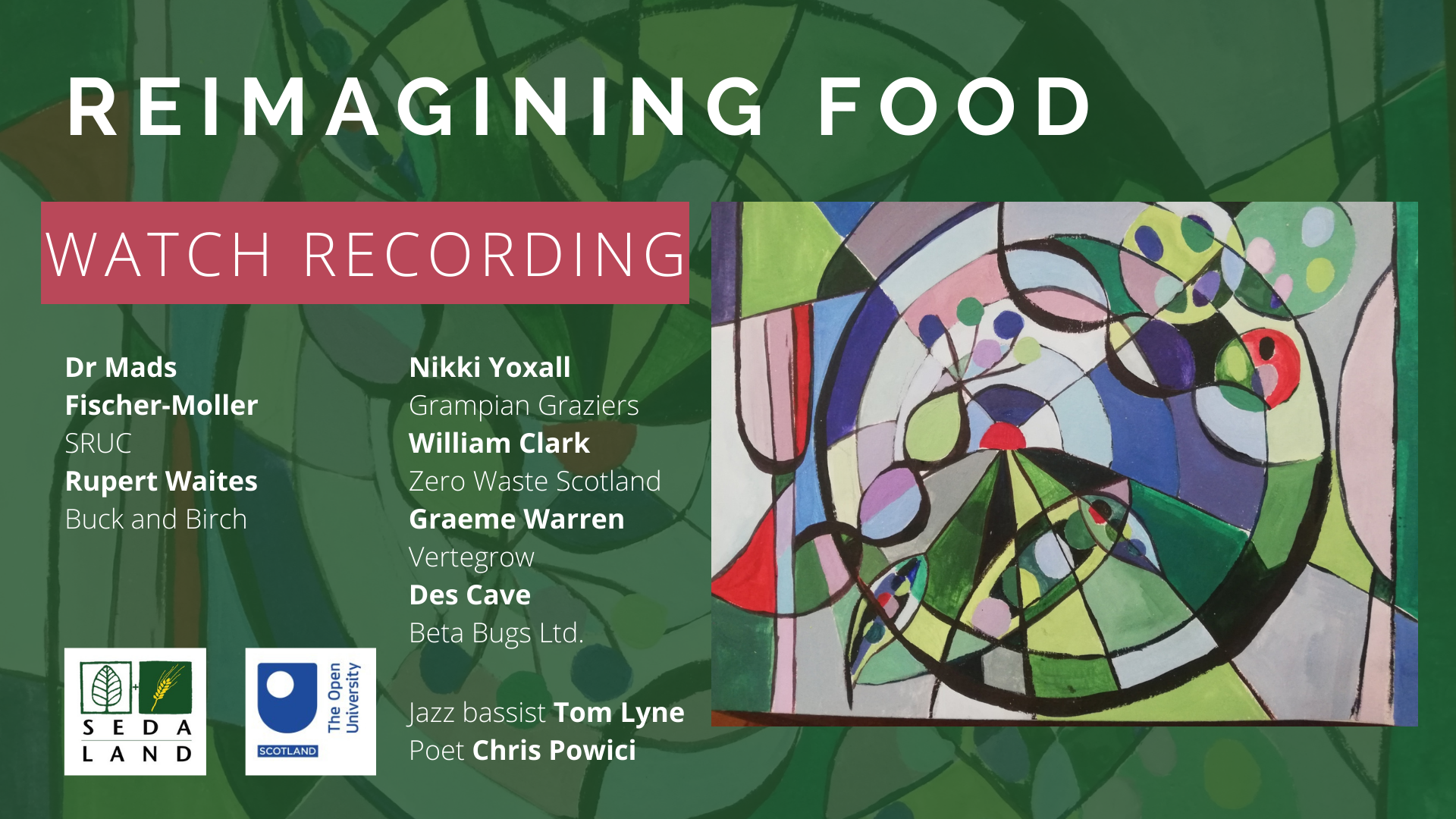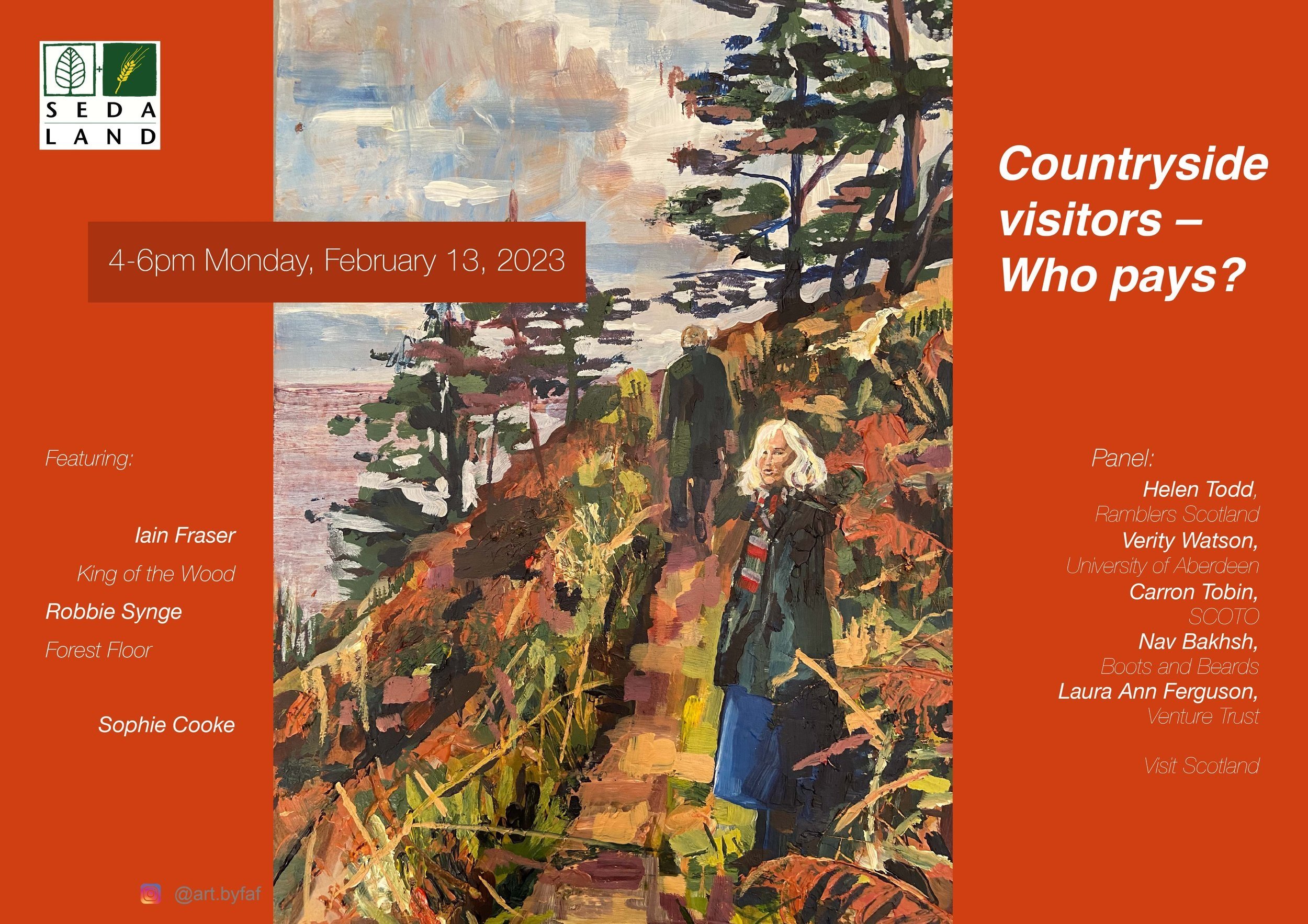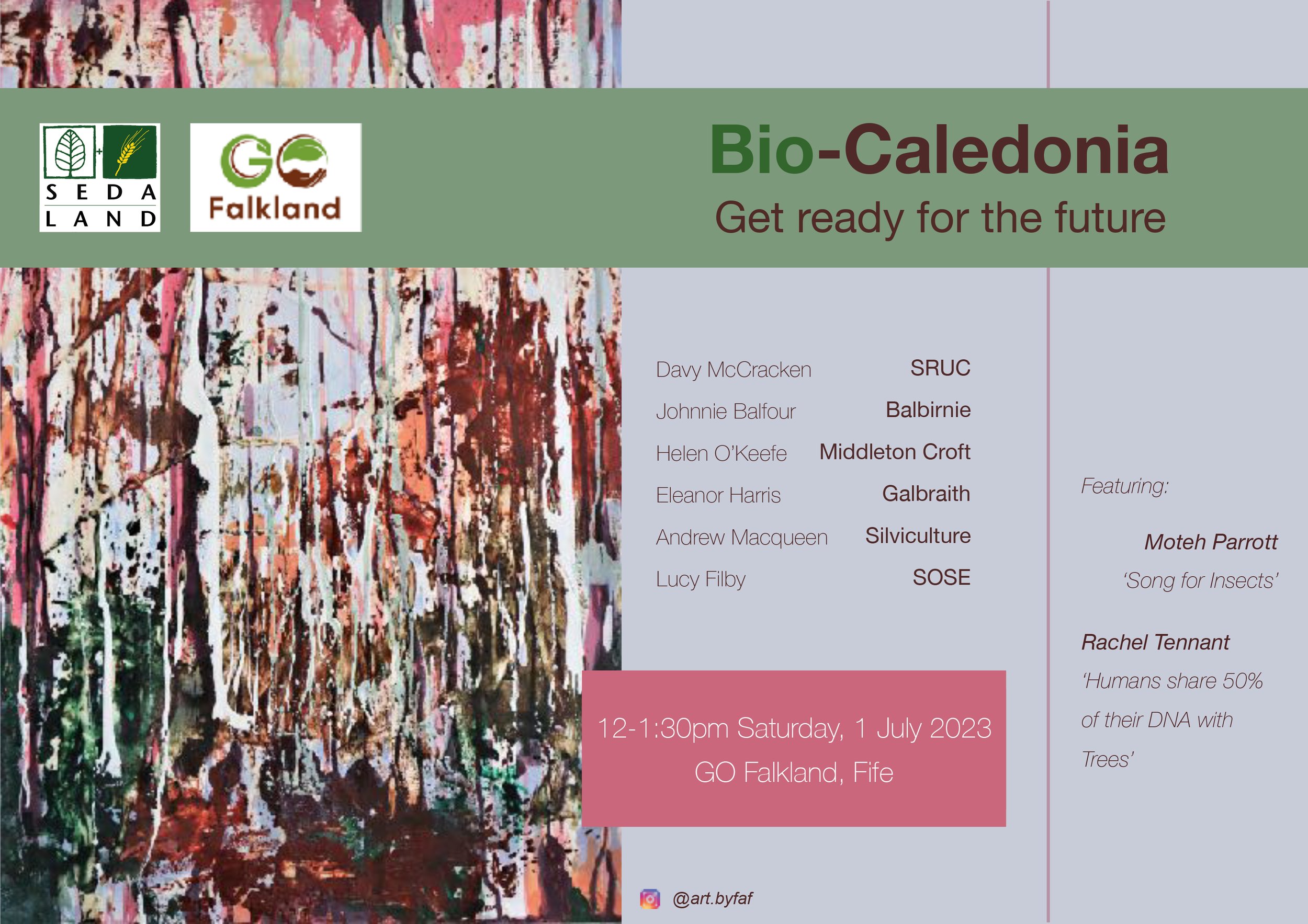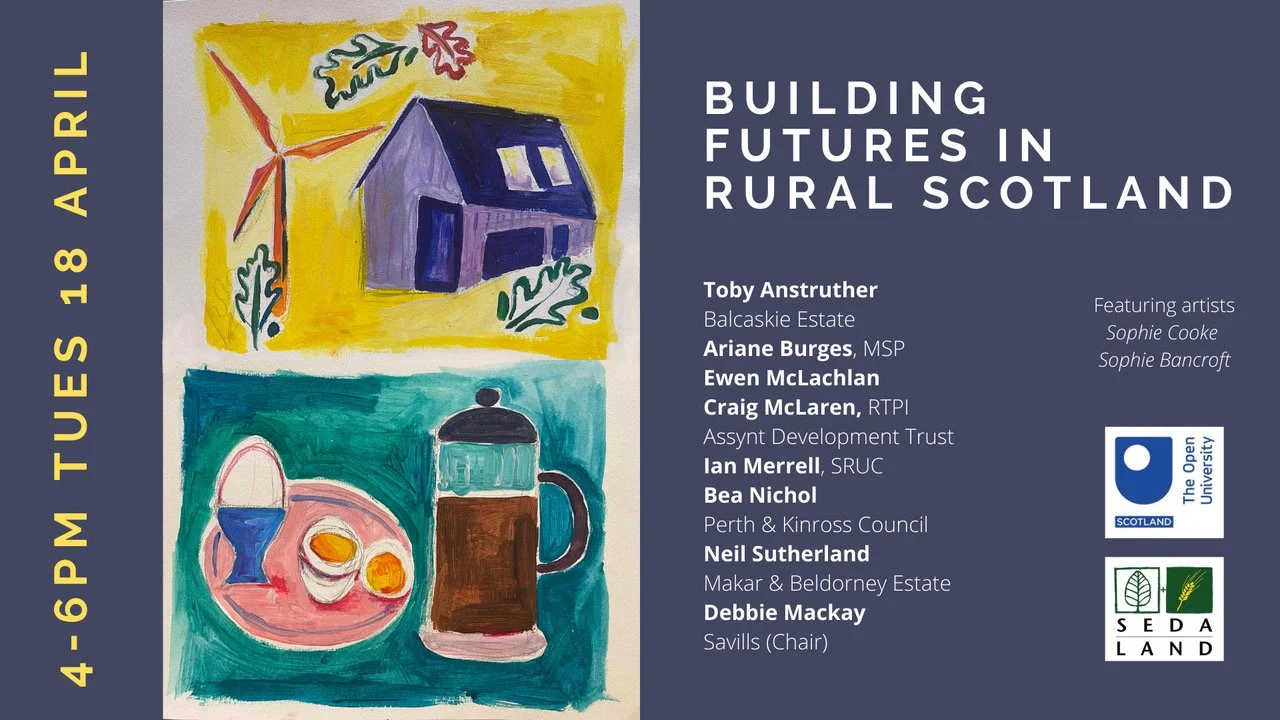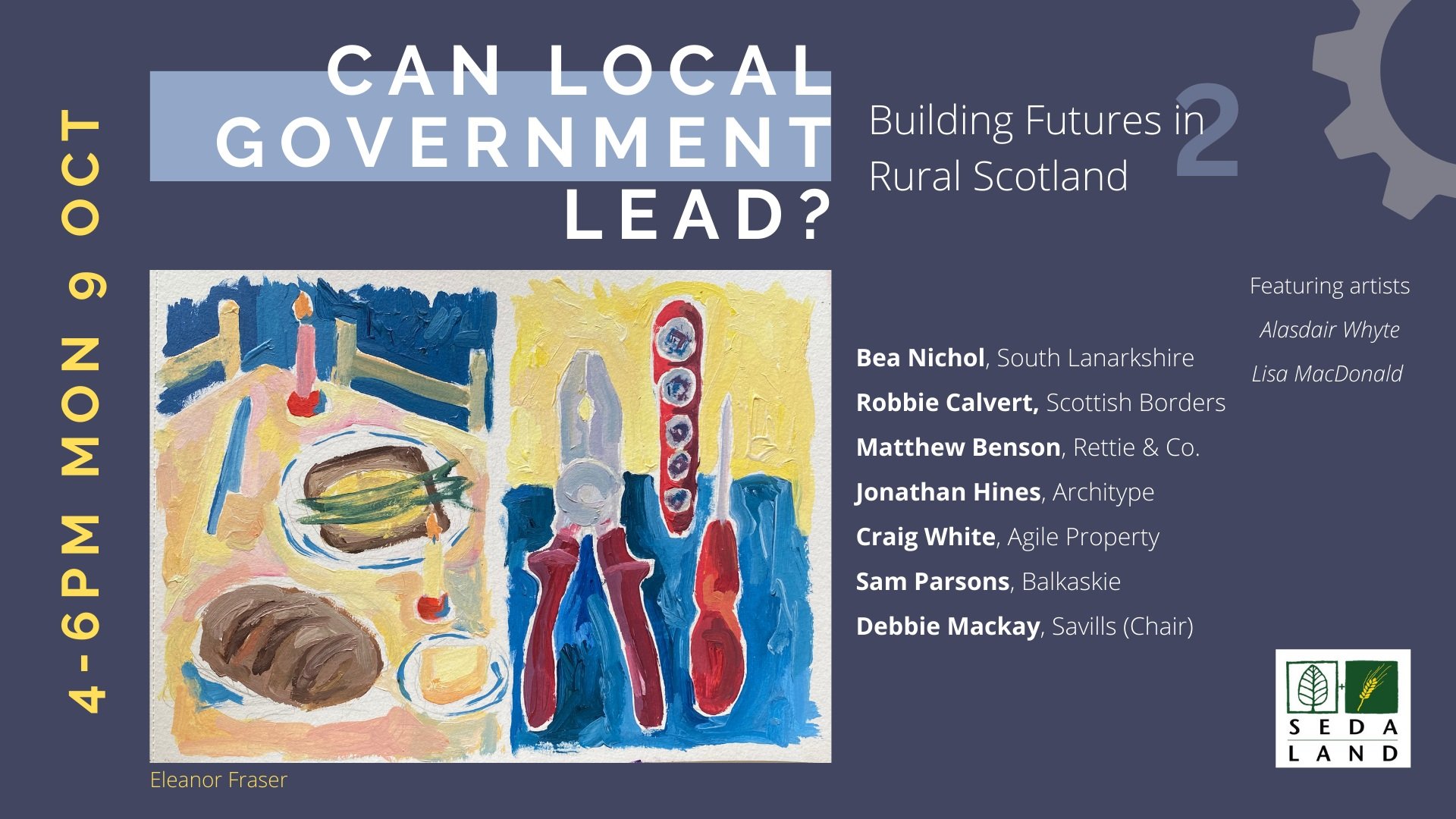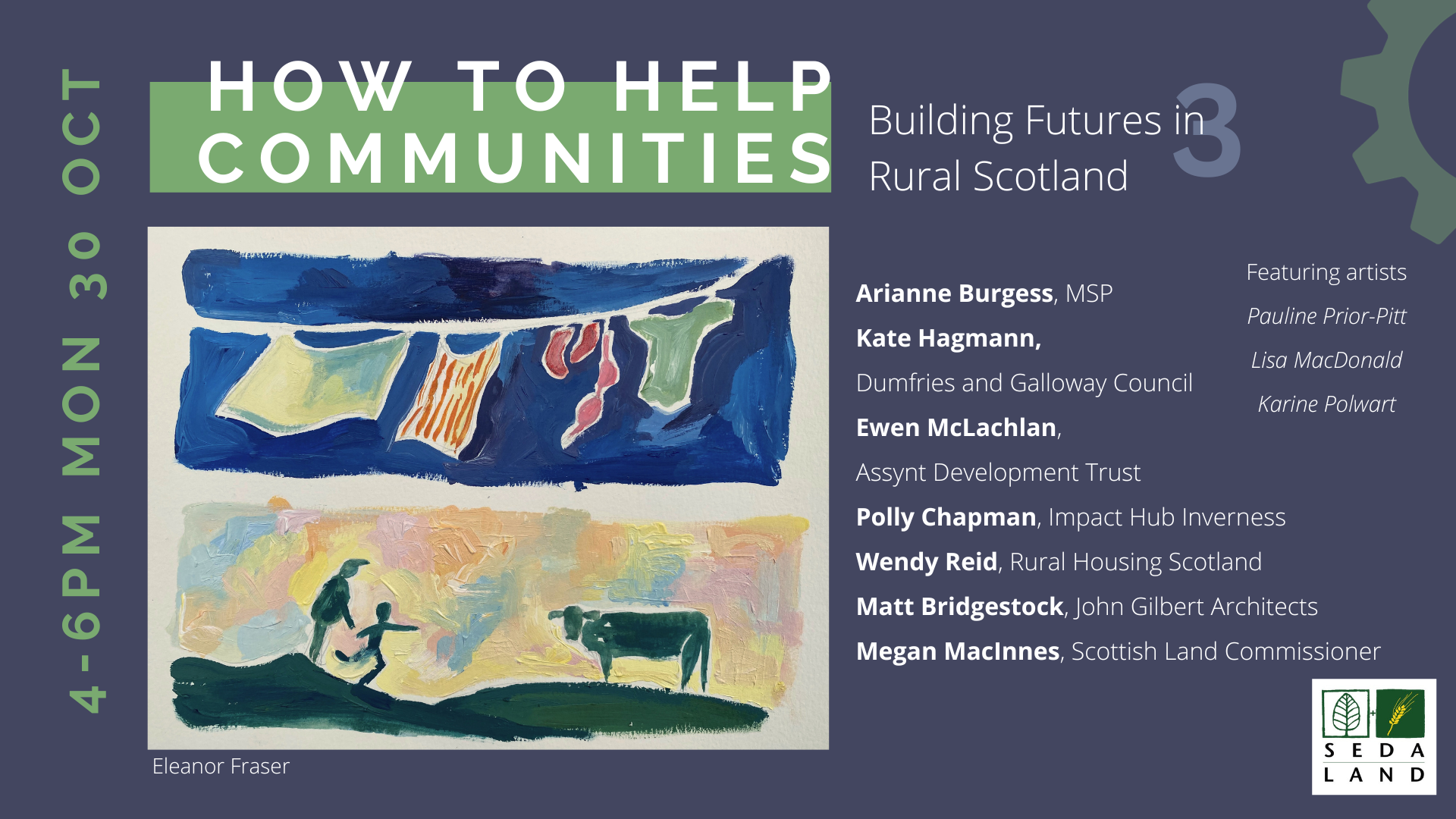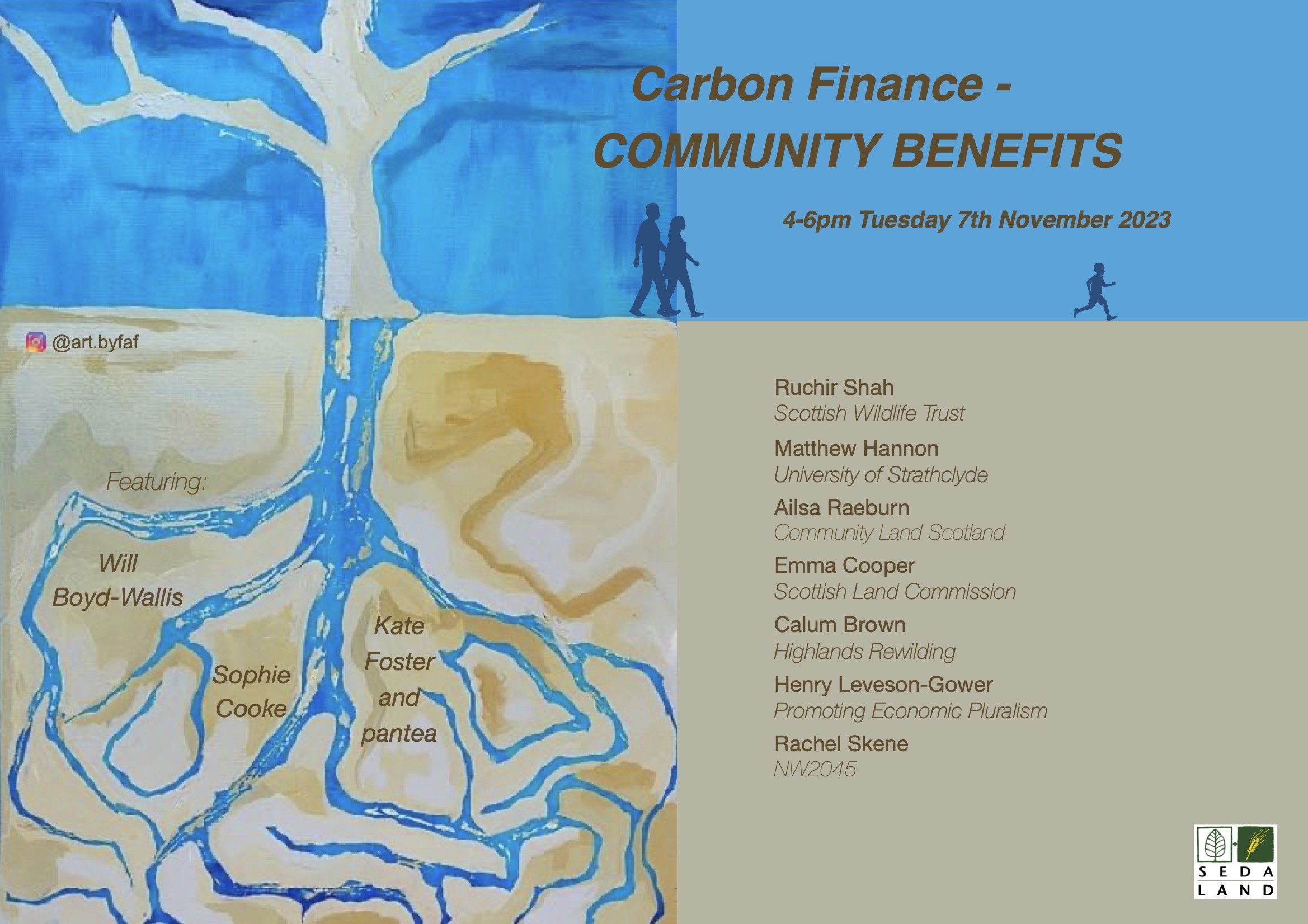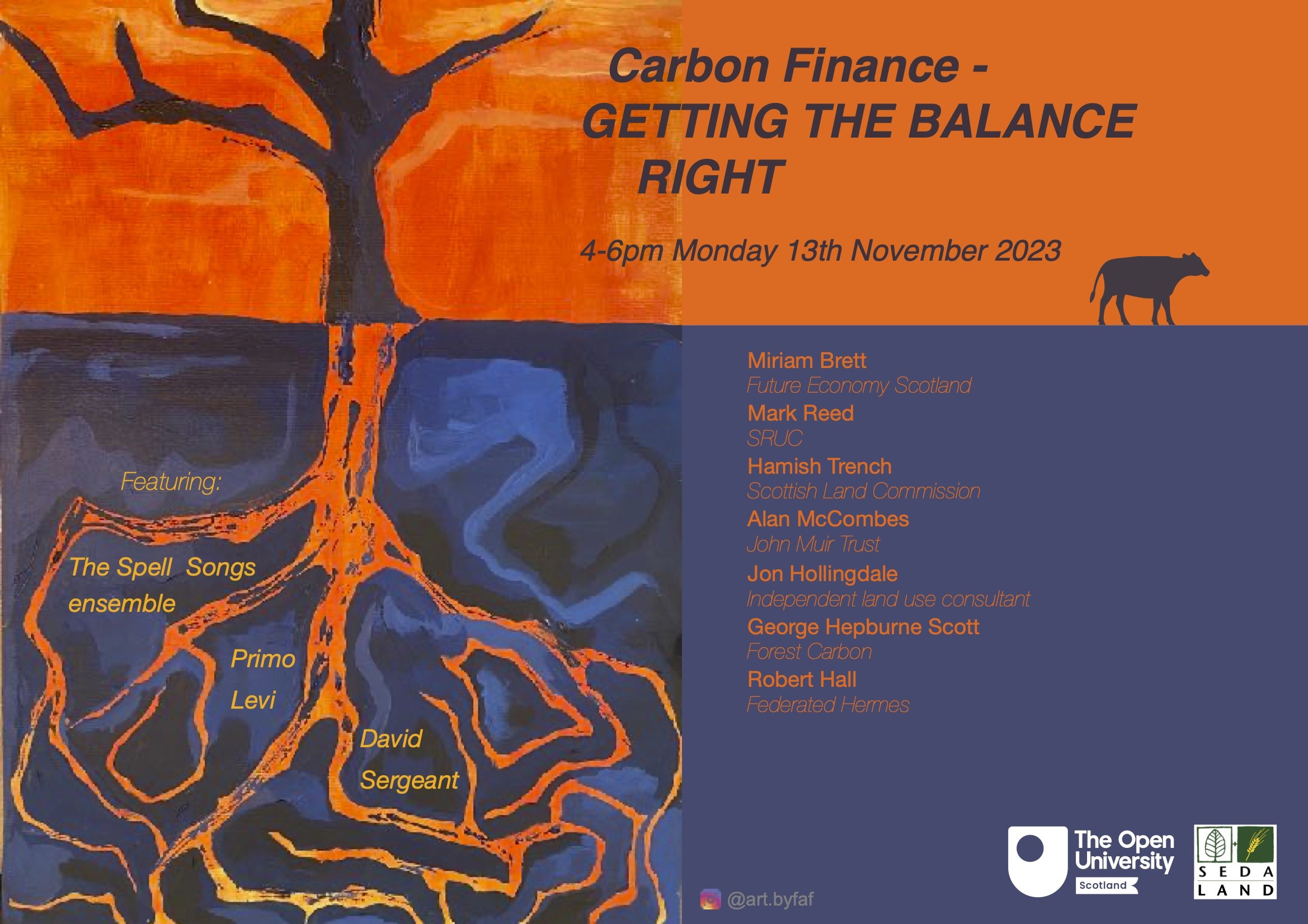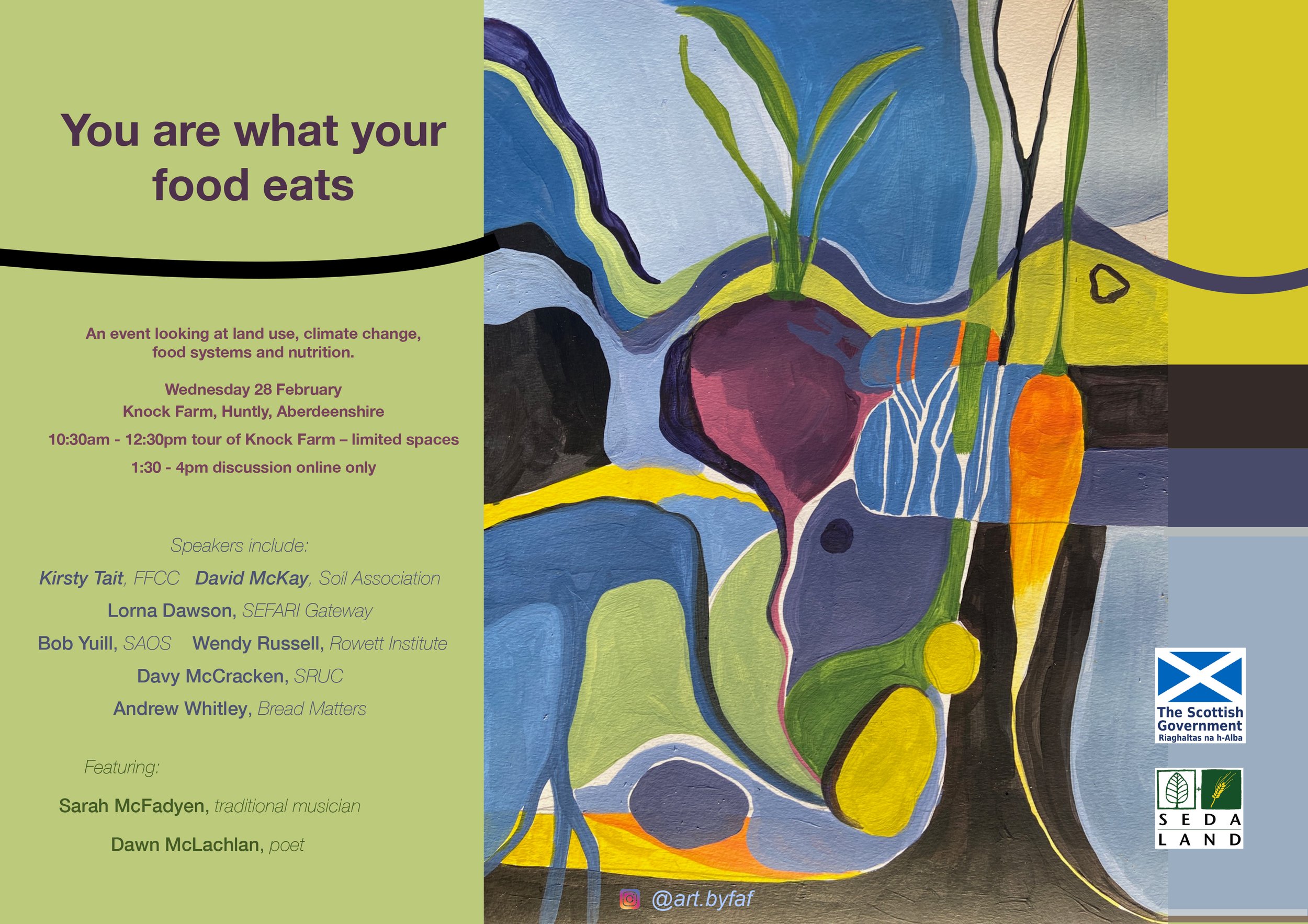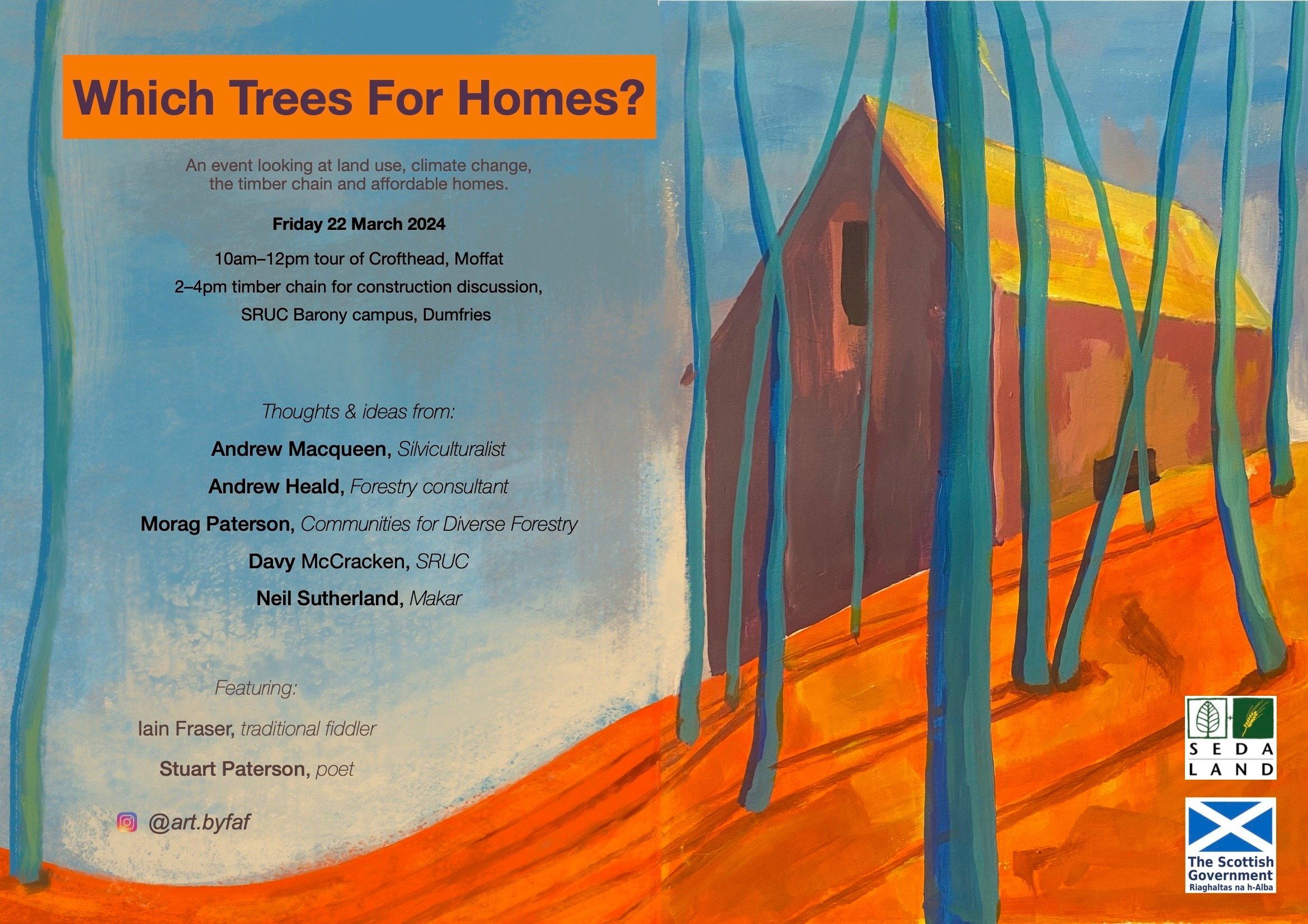A SEDA Land Conversation
CARBON FINANCE – GETTING THE BALANCE RIGHT
Monday 13th November 4-6pm 2023
Nature markets are here to stay, whether we like it or not. Contrary to much current opinion, such markets, which include carbon markets, biodiversity markets, and other emerging ecosystem markets, don’t have to be negative. With the right checks and balances they can open up opportunities for communities who may feel threatened by them. This is something SEDA Land will be exploring in two events: Carbon Finance – COMMUNITY BENEFITS and GETTING THE BALANCE RIGHT.
We will start by looking at communities and how they may be affected. Most people agree that communities should be better engaged and benefit more from ecosystem markets, but it is not clear how this should be done, or how local residents and communities might be compensated under a public funding model. We will discuss this in the first of the two events, ‘Carbon Finance – Community Benefits’.
There are growing concerns about the impact of private investment on land prices, tenant farmers and local communities, and the potential for greenwashing. Some, including Lorna Slater, minister for the circular economy and biodiversity in the Scottish Government, argue that the scale and speed of change needed to meet net zero targets in the land sector necessitates private investment. Others argue that private investment is only necessary because of government’s failure to prioritise climate action, and that the focus should be on progressive taxation to fund nature-based solutions.
Here are some themes that are going to be discussed in the two sessions
Who are the greatest winners and losers likely to be, and how might those with least power shape and benefit from these markets, as part of a just transition to net zero?
If there is to be a role for private finance in this transition, how can high-integrity markets and regulation be designed to protect tenants, communities and the public interest?
Should rural communities be actively engaging in these markets, passively sharing profits from local schemes, or would they be better off without these markets at all?
Could a carbon emissions land tax fill the gap in public finances that markets are trying to plug?
Might a combination of new taxes and new markets be the only way to reach the tree planting and peatland restoration targets recommended by the UK Committee on Climate Change?
Art by Flora Fraser.
PANEL
CHAIR: Miriam Brett
Co-Director, Future Economy Scotland
Miriam is one of the Co-Directors of Future Economy Scotland. She is also an advisory group member of Common Wealth think tank, a board member of Green New Deal Rising, and a research fellow at The Democracy Collaborative and the Wellbeing Economy Alliance. She sits on the expert panel for the North Ayrshire Community Wealth Building strategy, and was also a member of the Scottish Land Commission tax and land working group. Miriam most recently worked as director of research and advocacy for Common Wealth think tank. Prior to that, she was international development finance manager for an independent watchdog to the IMF and World Bank, Bretton Woods Project. Before this, Miriam was senior economic advisor to the SNP Westminster group, and a policy analyst at the Common Weal.
Prof Mark Reed
Professor of Rural Entrepreneurship, Scotland’s Rural College (SRUC)
Mark Reed is Professor of Rural Entrepreneurship and Director of the Thriving Natural Capital Challenge Centre at Scotland’s Rural College (SRUC). He is Research Manager for the International Union for the Conservation of Nature's (IUCN) UK Peatland Programme and a member of IUCN's international Committee on Ecosystem Management. He is a core member of UKRI-BBSRC's Bioscience for Sustainable Agriculture and Food Strategy Advisory Panel, helping BBSRC formulate its strategy for agriculture and food security. Mark is a transdisciplinary researcher specializing in environmental governance and research impact. He works with rural communities to enhance the governance of natural and agri-food systems, and his research on impact is changing the way researchers around the world generate and share knowledge so they can change the world. Find out more at: https://www.profmarkreed.com/
Hamish Trench
Chief Executive, Scottish Land Commission
Hamish Trench is Chief Executive of the Scottish Land Commission, a public body stimulating fresh thinking in how we own and use land in Scotland. The Commission advises Scottish Government and Parliament on land reform and works with land owners, managers and communities to support good practice. The Commission has recently published advice on ‘Natural Capital and Land Reform: Next Steps for a Just Transition (landcommission.gov.scot).
Alan McCombes
Public Affairs Adviser, John Muir Trust
Alan McCombes has worked for the John Muir Trust since 2012, in a range of roles including media manager, communications editor and public affairs manager. He has also been involved been involved in policy development with a strong focus on land reform, a just transition to net zero in the land sector, and the carbon emissions land tax. He lives in Blairgowrie.
Jon Hollingdale
Independent land use consultant
Jon Hollingdale is an independent land use consultant who has written on land use and green finance, including "The credibility gap for green finance" and "Green finance, land reform and a just transition to net zero", both commissioned by Community Land Scotland. Jon recently stepped down as Chief Executive Officer of the Community Woodlands Association, established in 2003 as the direct representative body of Scotland’s community woodland groups. Formerly a harvesting contractor in SE England, he has been working with and for community woodland groups across Scotland since 1999.
George Hepburne Scott
Director at Forest Carbon
George is a Director of Forest Carbon Limited. He works closely with a wide range of land managers across the UK to help certify projects under both the Woodland Carbon Code and Peatland Code. Clients include a mix of farmers, private landowners, charities, community groups, utility companies and local authorities. He is also closely involved with securing funding from businesses who are seeking to support nature-based projects in the UK. George is a qualified Chartered Surveyor and worked for both Savills plc and Knight Frank LLP over the course of 17 years, with a focus on the investment and development land sectors.
Robert Hall
Director, Earth Systems Impact Investment, Federated Hermes Limited
Robert joined the Real Estate division of Federated Hermes Private Markets in 2020. He is responsible for the construction of innovative sustainable and impact investment strategies underpinned by the interdisciplinary integration of ecological, climatological, social, economic and financial models. Robert recently led the collaborative development of the firm’s UK Nature Impact investment strategy. He is the joint head of the strategy’s investment management team. Robert is an author for the CFA on Climate Investment and Climate-Economy modelling. He is a Visiting Fellow at the Global Systems Institute, University of Exeter.
artistic contributions
Primo Levi
The Story of a Carbon Atom
To be read by Gerry Mulgrew
Primo Michele Levi was an Italian chemist, partisan and writer. He was the author of several books, collections of short stories, essays, poems and one novel. His memoir The Periodic Table takes its title from the table of elements, arranged according to their atomic mass, which was originally devised by Dmitri Mendeleyev in 1869. Levi links each episode of his life to a certain element. But in the book's final sectionbhe sets himself to imagine the life of a carbon atom.
David Sergeant
A language of change
To be read by Sophie Cooke
David Sergeant is Professor of English Literature at the School of Society and Culture, University of Plymouth. His work crosses creative and critical fields. Recent research has focused on issues of the future, the Anthropocene, systemic change, planetary scale, and utopian thought. This poem was selected by Carol Ann Duffy in her climate change anthology for the Guardian.
Karine Polwart, Julie Fowlis, Seckou Keita, Kris Drever, Rachel Newton, Beth Porter and Jim Molyneux
Oak (from Spell Songs II ‘Let The Light In’)
Spell Songs is the musical evolution of The Lost Spells book by Robert Macfarlane and illustrator Jackie Morris. With the climate changing every moment, and the forests being stripped of old growth trees, decimating the natural habitats of an array of wild creatures, we can either lament the losses of the spectacular biodiversity within which we live or we can celebrate it by embracing our relationship with the trees and the wildlife that dwell in the woods. Kris Drever says “for this song, I wanted music that had life and a sense of still, woody, wisdom, like the tree at its heart”.









